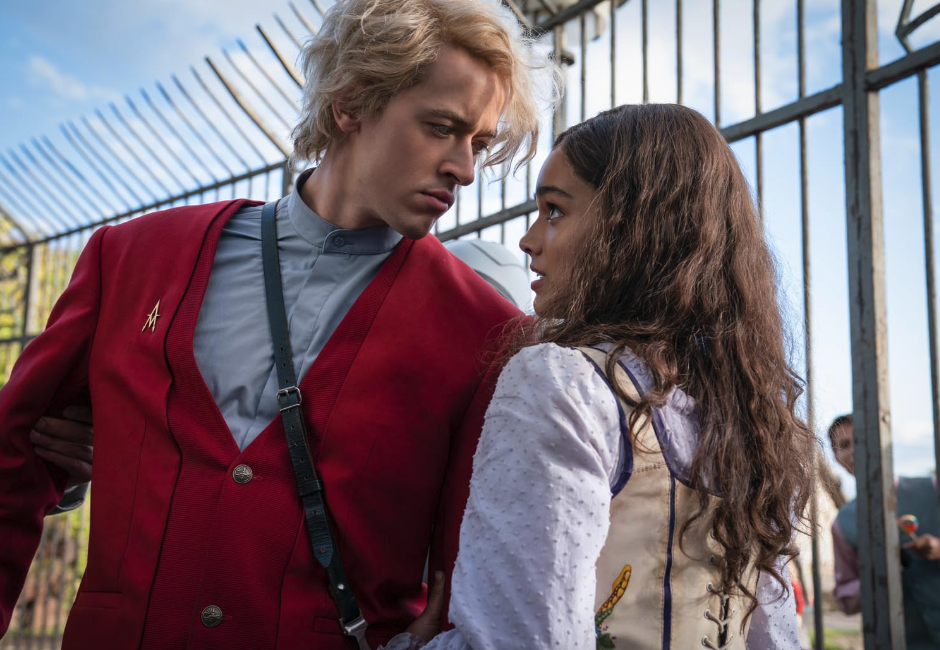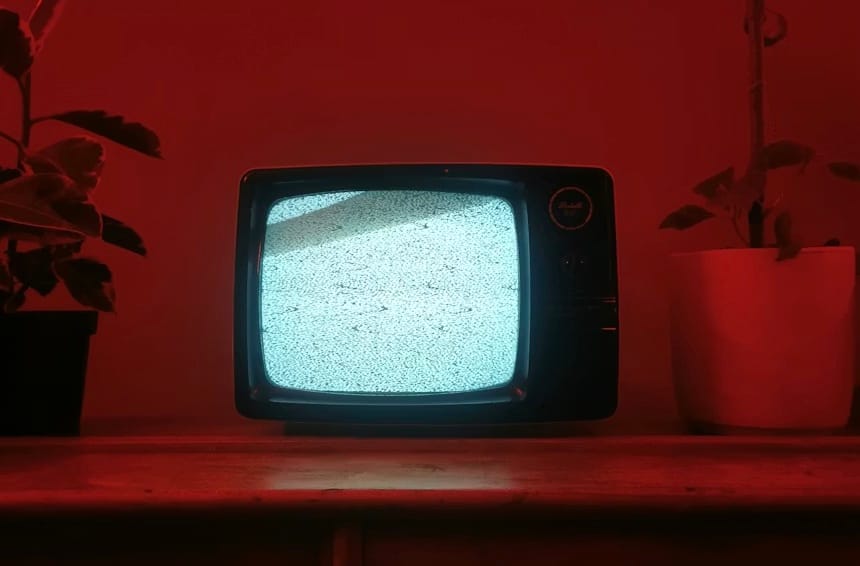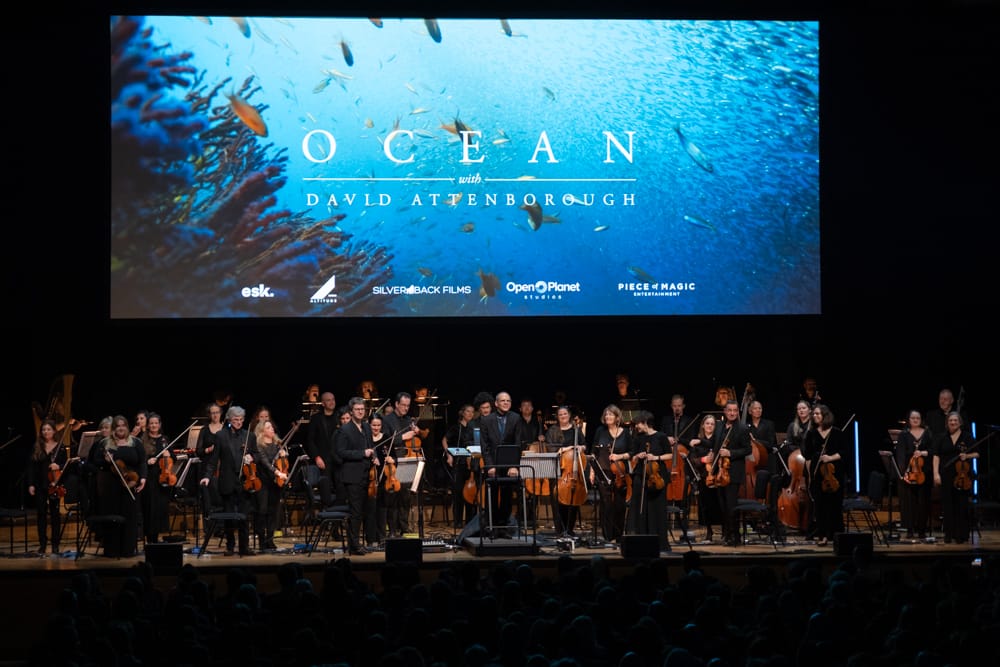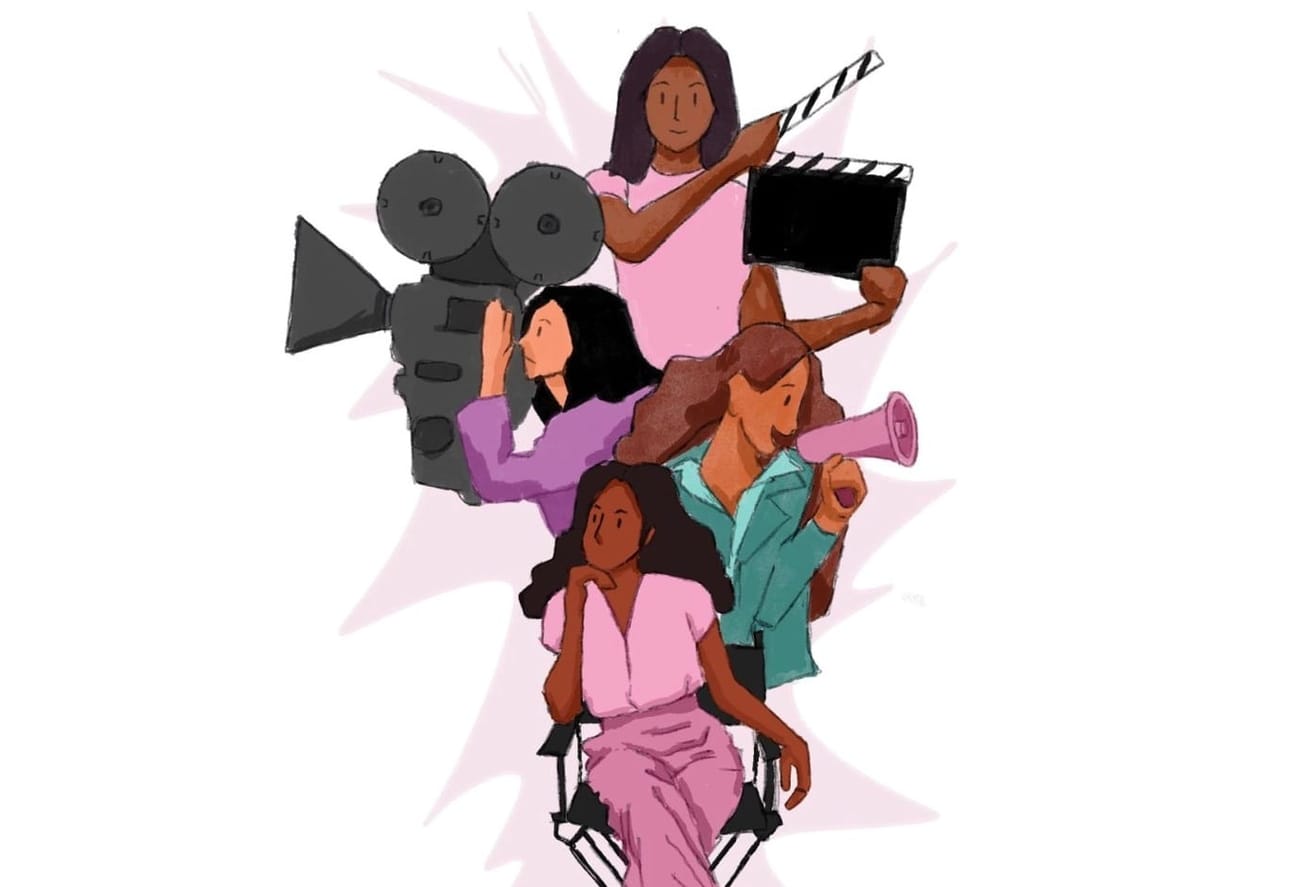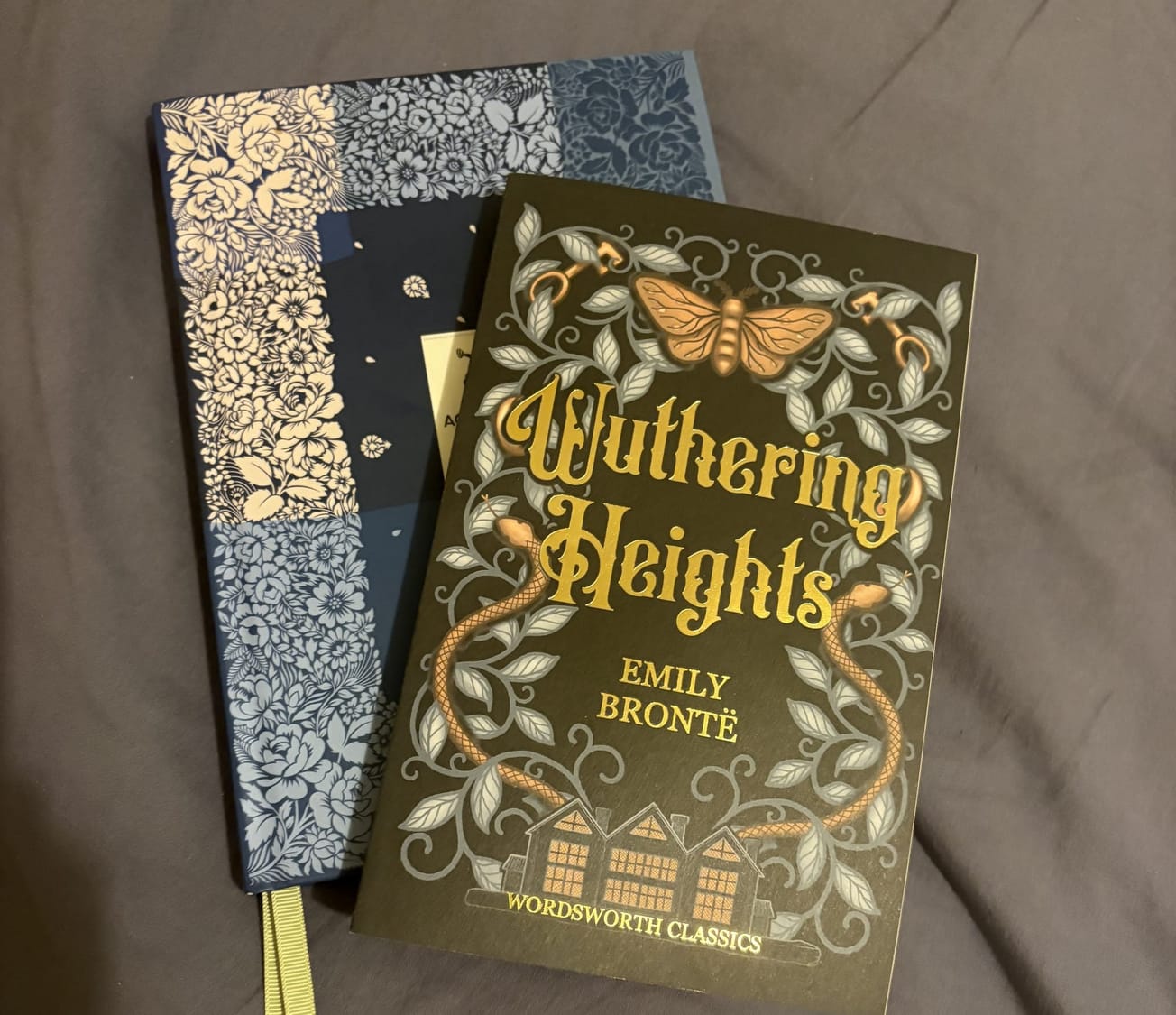By Sienna Thompson, Film & TV Digital Editor
After an eight-year gap from the last film, fans have been enthusiastic for the next instalment of The Hunger Games to come out, and with Suzanne Collins publishing The Ballad of Songbirds and Snakes in 2020 there has been anticipation for the trilogy’s prequel to hit the big screen. After three years of waiting, they finally got it.
Taking place 64 years before the first film with Katniss Everdeen, we witness Coriolanus Snow (Tom Blyth) as he reluctantly mentors District 12 girl Lucy Gray Baird (Rachel Zegler) for the 10th annual Hunger Games. As events progress, we witness the inevitable downward spiral of Coriolanus as he becomes a paranoid and power-obsessed individual and inevitably the calculating President Snow.
The most important aspect I want to note is the similarity between the book and the film, and I must say, the film did the book excellent justice. The film was structured into acts just like the book and considering its runtime of nearly two hours and 40 minutes, this separation of events made the film run smoothly. I feel though that that many aspects of the book that did not make the film should have still been included to add complexity to the storyline and characters. But I do
believe having the film in two parts would have felt unnecessary for the storyline and I felt very fulfilled seeing the events unfold all in one.
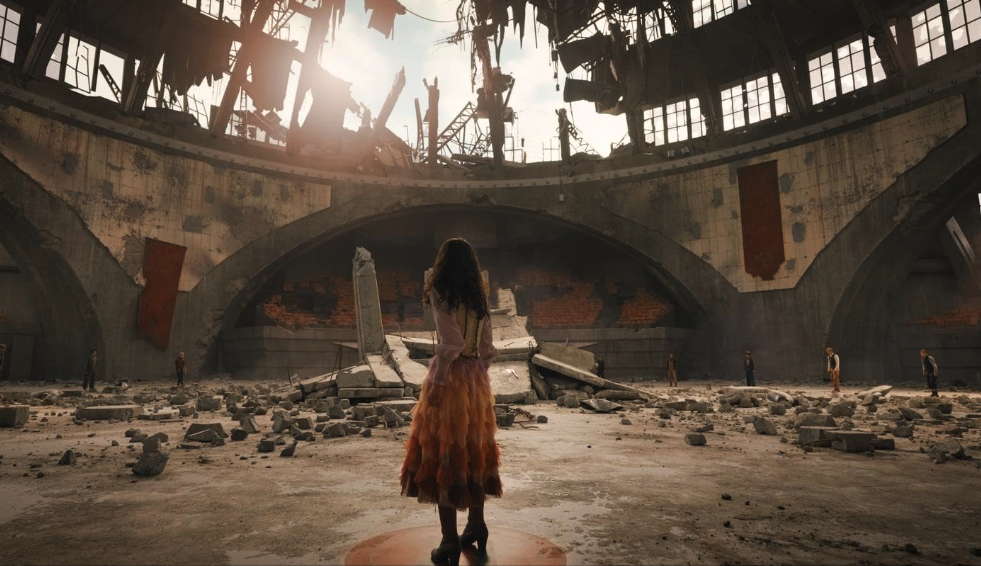
One noticeable character I felt was missing screen time was Tigris Snow (Hunter Schafer), Coriolanus’ cousin. There was much eagerness for Euphoria actress Hunter Schafer to embody this character, one I might argue is crucial to Snow’s
character. However, she felt very much like a background character, a fleeting thought. I did not feel impacted by her actions or words as I did in the book. Only her final words in the film to Coriolanus left a haunting effect. I do understand
there are many sacrifices that have to be made with these adaptations, but I do believe her screen time could have overruled certain scenes in the film as she provided vital familial context for Snow that you can’t see with his late mother
and father.
This is the first time I have seen Tom Blyth on screen, and he did excellent justice to the intricate character of Coriolanus Snow. I have always admired Snow as a villain, and this film provided a lot more depth to an already complex character.
There is the perfect balance of conflicting feelings towards him as we watch a financially struggling boy turn into a politically corrupt man. As well as this we see his morals clash as he develops feelings for a girl who represents a lifestyle
he could not imagine living. Tom Blyth truly made this character his own whilst also staying true to the vision in the book, and I can't wait to see what opportunities he gains from this film.
Despite the controversy surrounding Rachel Zegler, I believe she has redeemed aspects of herself through this role and her attitude towards it. She embodied Lucy Gray perfectly as I imagined her in the book. From her various singing scenes right
down to her slightly out-of-place Southern accent, she is used as an ‘innocent’ and ‘sweet’ figure cunningly designed by Snow to win sympathy not just from Panem but within the film’s audiences. The parallels between her and Katniss create
an understanding as to why Katniss had such an effect on Snow, and seeing certain songs or actions from the original trilogy was very nostalgic.
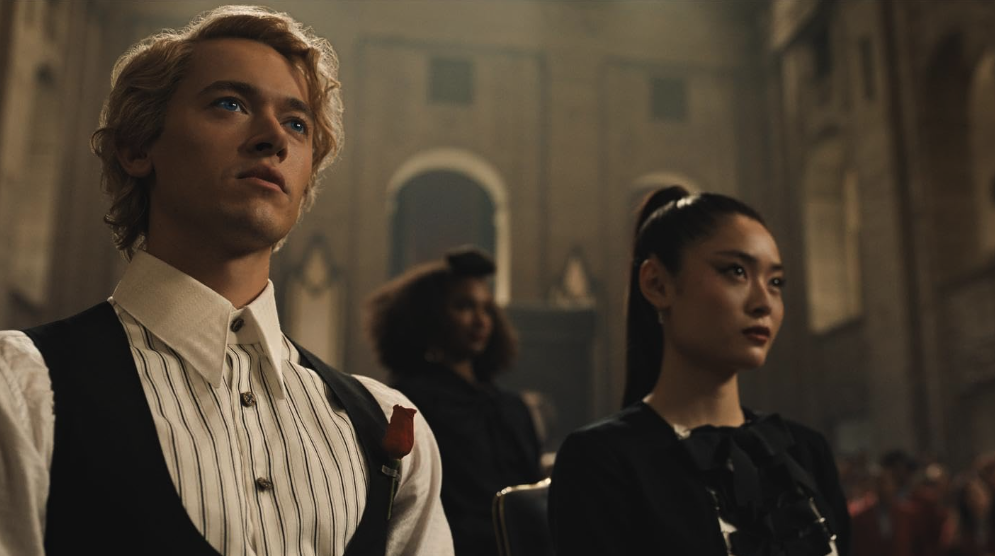
A role I was not expecting to like so much was Viola Davis as Dr Volumnia Gaul. Her sinister and enticing nature both appalled and entranced me, not just thanks to the excellent hair, makeup, and costume she was in, but her dramatic and
eerie voice. Seeing her influence over Coriolanus gradually cleared up lots of questions as to some of his actions in the original trilogy’s films. Her wicked creations laid blueprints for future game makers to toy with the tributes in the
arena, and you can see Viola Davis revelled in this part, one very distinct from her other film roles.
I do think to go into watching this film without having read the book is a mistake, not only for not having the advantage of appreciating the story being brought to life but also for the surplus of thought processes that take place that cannot be seen in the film. Without these, you only experience a shell of Cornelius’ beliefs and true intentions and are left with many unanswered questions, particularly with the ending.
Overall, I think this film has set the standard for many more book-to-film adaptations to come and has audiences pushing Suzanne Collins for more content in The Hunger Games world. I, alongside many others, would be very curious to see a prequel regarding Finnick Odair and Haymitch Abernathy’s games not only in book form but on the screen too. I am very pleased to see the dystopian genre that many in this generation are so fond of returning to cinemas, and hopefully being as successful as this film was.
How does this compare to the original series?

